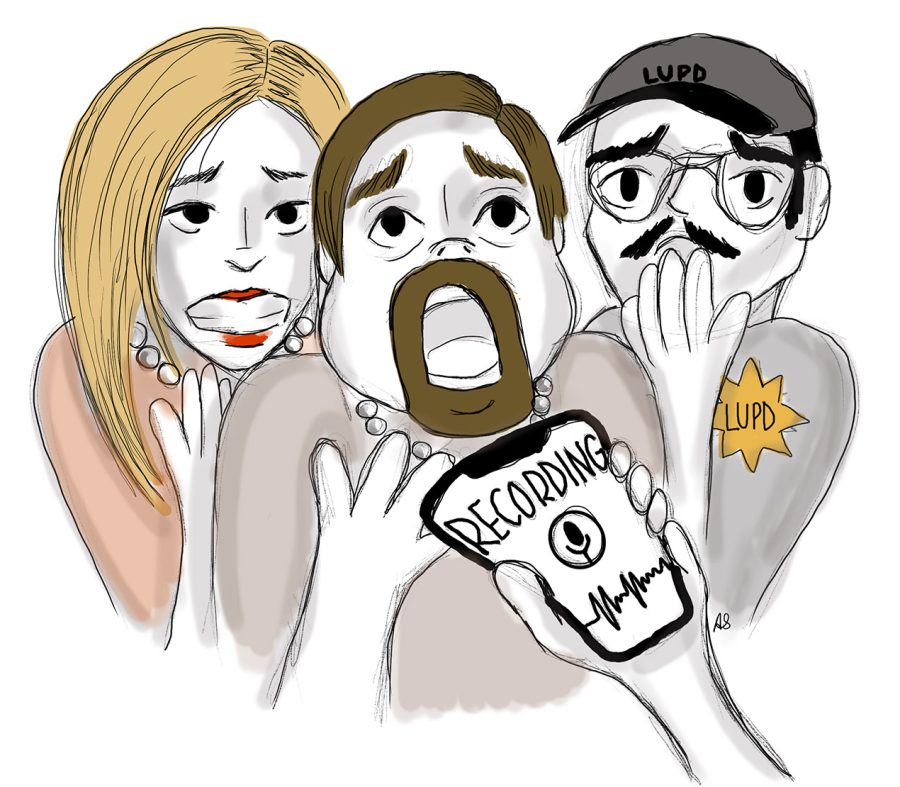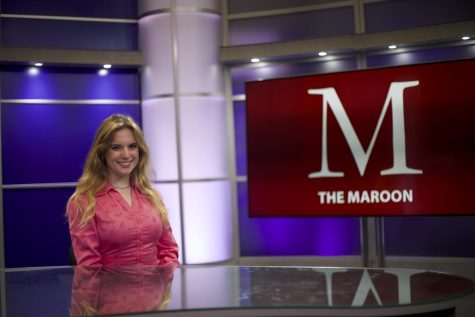EDITORIAL: LUPD should look inward
April 24, 2023
While we are grateful the disciplinary consequences were dropped from Maroon reporter Kloe Witt and that Interim President the Rev. Justin Daffron, S.J. wrote that the student conduct hearing process would see some revisions, another major issue has been brought to light as a result of the situation which has yet to be addressed.
Are the Loyola police properly trained and aware of their own policies?
When the Loyola University Police Department gave information to Witt on the evening of Luke Sahs’ arrest on campus, but then went on to file Code of Conduct charges against her for that very conversation, there seems to be one of two explanations for why their conversation with her became so controversial. Either they knowingly overshared with a reporter and later regretted it, or they let a stranger into their locked headquarters without any sort of identification and shared private information without knowing who they were giving it to.
We raise this second option because they acted like they had no idea they were talking to a reporter. They were acting like they had no idea Witt worked for the Maroon, even though we called ahead and said she was coming, and she identified herself at the door.
If the former of these two possibilities was the case, then their student conduct complaint against Witt is alarmingly unethical, because it shows they are knowingly punishing a reporter for a mistake LUPD itself made. There is no expectation of privacy when speaking to a reporter unless you ask, and the reporter agrees to allow the interview to be off the record. Under these strange twistings of the Code of Conduct, perhaps Kloe Witt should have filed a complaint against LUPD, since she was not asked to be recorded by video surveillance.
The door was locked. The police only let Witt in because she identified herself as a reporter. Period. She didn’t pick the lock. She didn’t rappel from the roof “Mission Impossible” style. The police let her in because she said she was there to report on a story. Then the police went on to tell her about the arrest. It was only after the story came out that they later called into question some details in her reporting, only to find out that she could back up everything she wrote in her story with her recording.
Then, and only then, did they object to the fact that she recorded them. They got caught oversharing. Then they tried to throw her under the bus.
Regardless of what happened, the real and only reasonable solution should have been better training for the officers, and not penalizing an 18-year-old reporter through the campus disciplinary process. If an officer overshares in an interview, it isn’t the reporter’s fault. Punishing her because the officer regrets what he told her is the height of hypocrisy.
We cannot forget that Loyola police are state-commissioned officers. They carry guns. If they aren’t properly trained on their own policies, it’s concerning what that could mean for the Loyola community. Are we safe?
Another unsettling piece of the story is that not a single officer even showed up for Witt’s student conduct hearing which their complaint led to. Witt was never given the opportunity to face her accuser, a right guaranteed to her by the university’s Code of Conduct. In fact, Witt didn’t know who filed the complaint until weeks after the hearing had passed.
But perhaps LUPD does deserve some understanding. If we were as cowardly as they acted in this case, maybe we wouldn’t have shown up to the hearing either.








